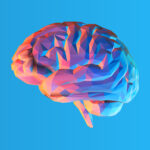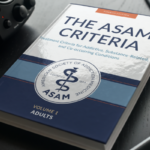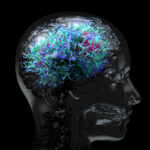Over 20 years of research and development showing the effectiveness of this method to treat compassion fatigue has been synthesized for the participants of this workshop. Compassion fatigue (STS + BO) results from Secondary Traumatic Stress (STS), also known as Vicarious Trauma, and is caused by interacting with traumatized or suffering people. It is a […]
Webinar
Applying the Science of Addiction: Recovery Expect Recovery
This seminar highlights the genetic and environmental factors that combine to produce alcohol and other drug use’s impact on the brain, body (mind) and behavior. Over 50 years of clinical neuroscience research shows that recovery or resilience is due to neuroplasticity, our brain’s ability to adapt and heal. Polyvagal Theory says that an essential element […]
Digging into the Bio-Psycho-Social: Addressing the Holistic, Multifaceted Needs of Individuals in Treatment and Recovery
Our understanding of the brain has exponentially expanded over the past few decades. This extraordinary growth in knowledge has led to research illuminating specific brain areas involved in addiction with the hope that novel medications and targeted neurologic interventions can treat substance use disorders. Expansion of life-saving medications to treat Opioid Use Disorder has been […]
Introduction to the Fourth Edition of the ASAM Criteria
This module is an introductory module to the Fourth Edition of the ASAM Criteria. The module will acknowledge the patient’s journey through the continuum of care and provide an understanding of the partnership between providers and payers. Additionally, this module will review the updates to the ASAM Criteria. Presenter Dr. Tiffany Lee is a Professor […]
Professionals and Community Members as Recovery Allies
Family members, friends, neighbors, professionals, and other community members play a critical role as allies in supporting recovery. Research shows that creating a meaningful life in recovery requires access to healthcare, safe and affordable housing, educational opportunities that may have been missed during periods of drug use, and employment that allows people in recovery to […]
How to use SBIRT with People Experiencing Homelessness Who Smoke Tobacco
While rates of smoking have declined overall in the United States, it remains highly prevalent among People Experiencing Homelessness (PEH). Coexisting factors like mental illness, addiction, and the life circumstances of PEH contribute to an attitude among health professionals that addressing tobacco use is not worthwhile with PEH. However, despite barriers to treatment, 40%-50% of […]
How the Americans with Disabilities Act Applies to Addiction and Recovery
There are thousands of people with addiction to alcohol and in recovery from opioids and other drugs unaware of their civil rights under the Americans with Disabilities Act (ADA). This webinar provides an overview on how the ADA applies to alcohol and substance use disorders using scenarios to illustrate the application of the ADA to […]
SUD Treatment for People with Cognitive Challenges – Part 2
Part 2 of the session presented on 1/24/24 – Due to the opioid epidemic, the number of people with cognitive impairment (CI) caused by overdose is on the rise. Yet many clinicians feel under-prepared to effectively treat people with SUD and CI. This webinar will focus on techniques and strategies to improve the SUD treatment […]
Addressing Drug Use and Recovery Stigma in Healthcare
Addressing Drug Use and Recovery Stigma in Healthcare is a presentation by Elevyst to discuss perceptions of drug use, how we got here, and how our novel research demonstrates the need for changes in healthcare. We will discuss in-depth the results of our 2022 study of attitudes and perceptions of healthcare professionals toward people who […]
Catching Crisis How Affect Infusions Affect Us
Social referencing and emotional contagion are natural responses to the emotionally charged work we do with clients, especially in times of crisis. They are also phenomena that can negatively impact judgment and decision-making in the moment and eventually contribute to burnout and vicarious trauma. As providers, we’re taught mindful self-care techniques for before and after […]















